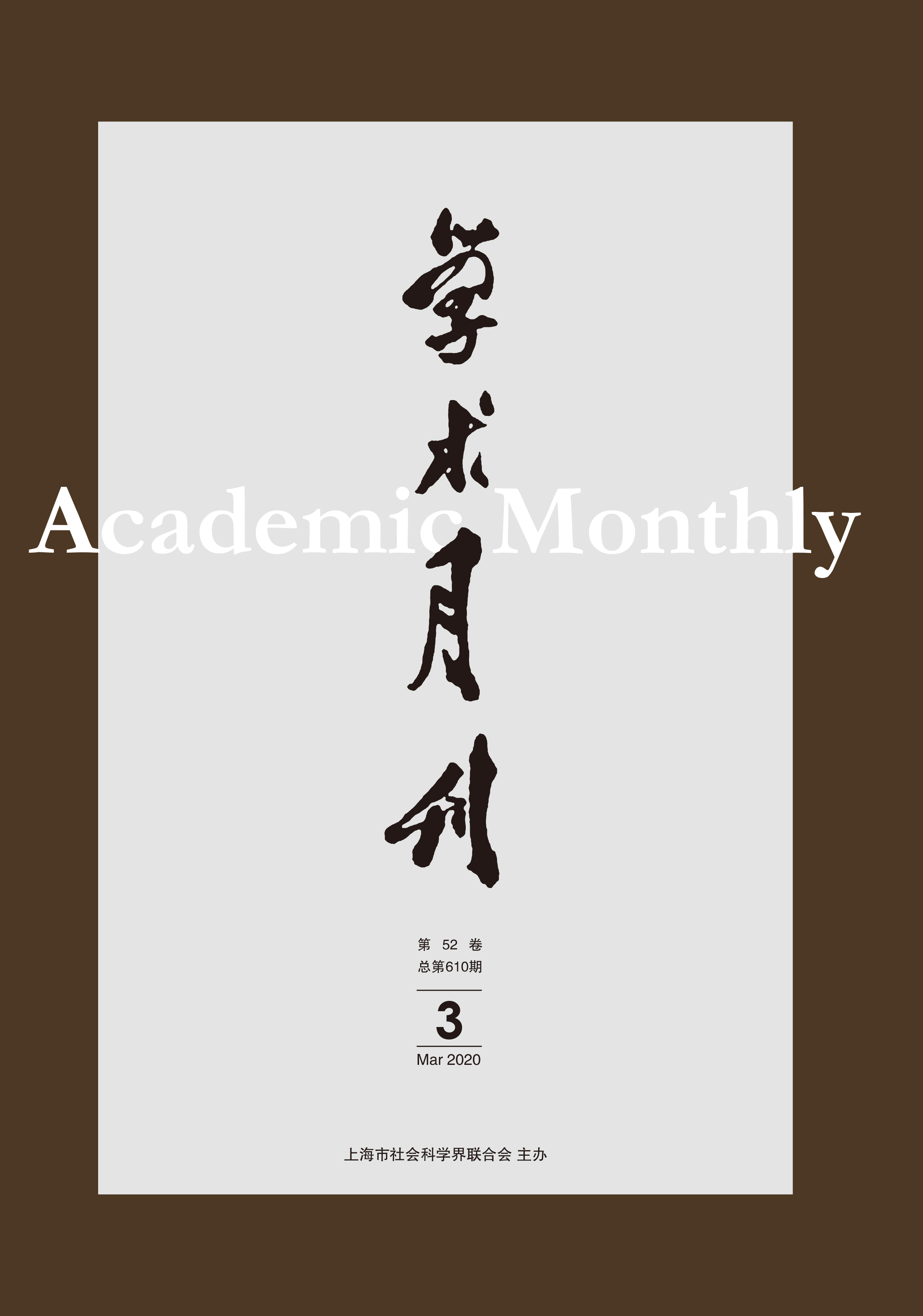Citation:
Yuefeng ZHOU. The Modernity Denied by the Future: The First World War and the Making of the Hybridity of May Fourth New Culture Movement[J]. Academic Monthly, 2020, 52(3): 167-178.

The Modernity Denied by the Future: The First World War and the Making of the Hybridity of May Fourth New Culture Movement
-
Abstract
Scholars have paid much attention to the influence that the May Fourth Movement rather than the First World War, has exerted on the New culture Movement. Since the Late Qing and early Republican period, most Chinese saw the West society as the new/the future of their own country, which is the aim of the New Culture Movement at its first phase. However, the outbreak of the First World War partly changed this trend, and Chinese elites considered the civilization of the brand new future in place of the Western civilization which they once took as exemplar has recently gone to the bankruptcy. And they considered their time as the contemporary. The future is almost complex and unknown to them, however, the future is considered as transcendence, even as a denial to the modern civilization. Following this trend, a new tendency, that took the modernity whole as negative symbol in the circle of thinkers, was formed. As a result, the contemporary partly denied the legitimacy of modernity in the name of future. At the same time, to some degree, this rescued the Chinese tradition which was once thought as the opposite of modernity and also other being depressed intellectual resources. The Western modern civilization, the Chinese traditional civilization and the future civilization in mind, which existed, competed, interrelated and eventually fought with each other in the milieu of the intellectual circle in May Fourth Movement, and then formed the hybridity of New Culture Movement.
-

-
References
-
Access
-
-
[1]
Bing SANG
. New Youth and the New Culture Movement. Academic Monthly,
2020, 52(5): 163-184.
-
[2]
. . Academic Monthly,
2016, 48(04): 158-168.
-
[3]
Jiagui XU
. Nanking Higher Normal School-Southeast University and the New Culture Movement. Academic Monthly,
2022, 54(6): 192-208.
-
[4]
SANG Bing
. The New Culture Movement and the Flourishing of Publications. Academic Monthly,
2024, 56(3): 196-211.
-
[5]
. . Academic Monthly,
2016, 48(09): 20-26.
-
[6]
Ping HE
. New Culture Movement and the Opening of Sinicization of Marxist Philosophy. Academic Monthly,
2022, 54(1): 11-24.
-
[7]
QI Weiping
. New Mission and New Narrative: The Discourse Creation of Modern Civilization of Chinese Nation. Academic Monthly,
2024, 56(2): 21-32.
-
[8]
. . Academic Monthly,
2016, 48(04): 114-124.
-
[9]
Chunguang WANG
. Rural Non-Employment Income and the Possible Future Picture of Chinese Rural Modernization. Academic Monthly,
2022, 54(12): 128-140.
-
[10]
Wei CHEN
. The Shanghai Style Beijing Opera: An active Advocator and Important Member of the May Fourth New Culture. Academic Monthly,
2019, 51(8): 122-131.
-
[11]
Williamson Timothy
. Philosophy and Its Future. Academic Monthly,
2021, 53(7): 14-21.
-
[12]
Jianzhou FU
. Three Image Modes in the Picture Images of Modern Chinese Literature. Academic Monthly,
2021, 53(7): 168-178.
-
[13]
Yun WANG
, Yunbin ZHANG
. Social Preference Theory: Controversy and Future Development. Academic Monthly,
2021, 53(6): 72-86.
-
[14]
Bo WANG
. Division of Career: Reflections on the Cultural Movement after the May Fourth Movement. Academic Monthly,
2021, 53(10): 205-216.
-
[15]
Zhongmin ZHANG
. Making the Idol of the New Culture: Hu Shi and His Readers. Academic Monthly,
2020, 52(12): 158-173.
-
[16]
Zhouxing SUN
. Karl Marx’s Critique of Technology and the Future Society. Academic Monthly,
2019, 51(6): 5-12.
-
[17]
Zhongying PANG
. The Future of the Study of Global Governance: A Comparative and Reflective Perspective. Academic Monthly,
2020, 52(12): 57-67.
-
[18]
Shizong WANG
, Fan YANG
. Grassroots Governance Research: Reflections, Consensus and Prospects. Academic Monthly,
2022, 54(7): 80-92.
-
[19]
Liangbo LUO
. The Evolution of Administrative Rationality: Tradition, Reality and Future. Academic Monthly,
2019, 51(5): 58-71.
-
[20]
Xia Yiran
, Lu Ming
. . Academic Monthly,
2018, 50(5): 45-55.
-
-



 沪公网安备 31010102003103号
沪公网安备 31010102003103号 DownLoad:
DownLoad: